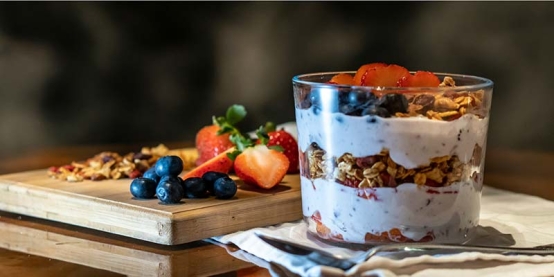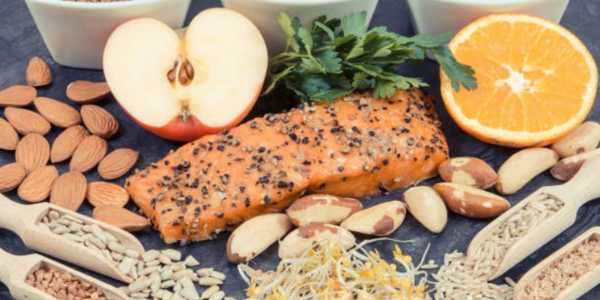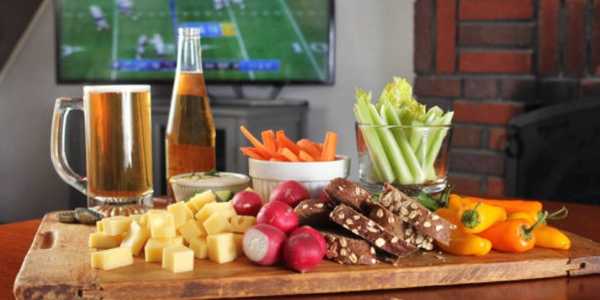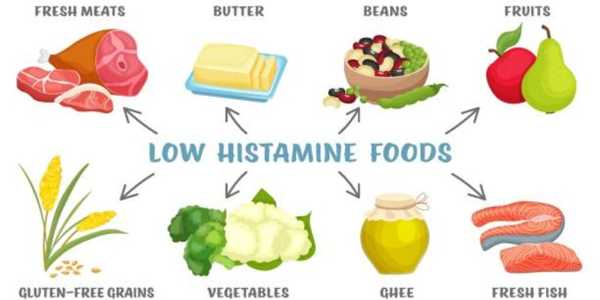10 Soft Desserts for Seniors with Dysphagia
Dysphagia, or trouble swallowing, makes eating a challenge for many. Soft desserts offer a tasty solution, catering to specific dietary needs while making mealtime more enjoyable. In this article, we dive into these delicious treats and show how they can bring both comfort and flavour to those with dysphagia.
Dietary Needs for Those with Dysphagia
Soft foods are essential for alleviating swallowing difficulties while minimising strain and discomfort. Their smooth consistency enhances safety, reducing the risk of choking.
Pureed foods, often recommended, should be smooth and thick, resembling pudding, and may include mashed potatoes, fruit purees, or yoghurt. These promote easier swallowing and reduce anxiety.

Additionally, soft-textured foods like cooked vegetables, scrambled eggs, and tender fish contribute to suitable meals. Minced foods, such as finely chopped meats, well-cooked pasta, or soft cheese, are also ideal for easy chewing and swallowing.
Types of Soft Desserts
A. Puddings
Soft and creamy puddings can be a delightful addition to a senior's diet, making them feel special while maintaining safety.
Recipe 1: Vanilla Pudding
Ingredients:
• 2 cups whole milk
• 2 egg yolks
• 1/2 cup sugar
• 1 tablespoon cornstarch
• 1 teaspoon vanilla extract Preparation Steps:
1. Heat the milk in a saucepan over medium heat until warm.
2. In another bowl, whisk the egg yolks, sugar, and cornstarch until smooth.
3. Gradually add the warm milk into the egg mixture, whisking continuously to prevent curdling.
4. Pour the mixture back into the saucepan and cook on medium heat, stirring constantly, until the pudding thickens.
5. Stir in the vanilla extract, then remove from heat, cool to room temperature, and refrigerate for at least 2 hours.

Recipe 2: Chocolate Pudding
Ingredients:
• 2 cups whole milk
• 1/2 cup sugar
• 1/3 cup cocoa powder
• 1 tablespoon cornstarch
• 1 teaspoon vanilla extract
• Pinch of salt Preparation Steps:
1. In a saucepan, mix sugar, cocoa powder, cornstarch, and salt.
2. Gradually whisk in the milk and cook over medium heat, stirring constantly until thickened.
3. Once it thickens, reduce the heat and continue cooking for an additional two minutes.
4. Stir in the vanilla extract before letting it cool completely, either at room temperature or in the refrigerator for at least 2 hours.
B. Milkshakes and Smoothies
Creamy milkshakes and smoothies are excellent options that can be tailored for flavour and nutrition.
Recipe 1: Banana Yoghurt Smoothie
Ingredients:
• 1 ripe banana
• 1/2 cup plain yoghurt
• 1/2 cup milk
• 1 tablespoon honey (optional) Preparation Steps:
1. Peel the banana and cut it into chunks.
2. In a blender, combine banana, yoghurt, milk, and honey, if using.
3. Blend until smooth and creamy, then serve immediately or refrigerate until ready to enjoy.

Recipe 2: Strawberry Banana Milkshake
Ingredients:
• 1 cup frozen strawberries
• 1/2 banana
• 1 cup milk
• 1 tablespoon sugar (optional) Preparation Steps:
1. Add frozen strawberries, banana, and milk to a blender.
2. Blend until the mixture is smooth and creamy.
3. If desired, add sugar and blend again before serving immediately.
C. Fruit Purees and Jellies
Healthy fruit purees and jellies can add a burst of flavour and colour to any meal.
Recipe 1: Apple Puree
Ingredients:
• 2 apples (peeled, cored, and chopped)
• 1/2 cup water
• 1 tablespoon honey (optional) Preparation Steps:
1. In a saucepan, combine chopped apples and water.
2. Simmer on low heat for about 15 minutes or until the apples are tender.
3. Blend until smooth, adding honey if desired, then serve warm or chilled.
Recipe 2: Mango Jelly
Ingredients:
• 1 mango (peeled and chopped)
• 1 tablespoon gelatin
• 1/2 cup water
• 1 tablespoon sugar Preparation Steps:
1. Blend the mango until it reaches a smooth consistency.
2. Dissolve the gelatin in a half cup of warm water, mixing until entirely melted.
3. Combine the mango puree with the dissolved gelatin in a bowl.
4. Pour the mixture into moulds and let it set in the refrigerator for 2-3 hours.
D. Soft Cakes and Cookies
Soft cakes and cookies can be both delightful and easy for seniors to consume.
Recipe 1: Soft Banana Cake
Ingredients:
• 2 ripe bananas
• 1 cup flour
• 1/2 cup sugar
• 1/4 cup milk
• 1 egg
• 1 teaspoon baking powder
• 1 teaspoon vanilla extract Preparation Steps:
1. Preheat the oven to 350°F (175°C).
2. Mash the bananas in a bowl until smooth.
3. In another bowl, mix flour, sugar, baking powder, and milk until combined.
4. Add the mashed bananas, egg, and vanilla extract, then stir until smooth.
5. Pour into a greased cake pan and bake for 25-30 minutes; let cool before serving.
Recipe 2: Soft Oatmeal Cookies
Ingredients:
• 1 cup oatmeal
• 1/2 cup flour
• 1/4 cup butter (softened)
• 1/4 cup honey
• 1 egg Preparation Steps:
1. Preheat the oven to 350°F (175°C).
2. Mix all ingredients in a bowl until thoroughly combined.
3. Drop spoonfuls of the dough onto a baking sheet.
4. Bake for 12-15 minutes, or until golden brown; cool before serving.
E. Dairy Desserts
Dairy desserts like custards and parfaits not only taste good but also provide necessary nutrients.
Recipe 1: Creamy Custard
Ingredients:
• 2 cups milk
• 3 egg yolks
• 1/2 cup sugar
• 1 teaspoon vanilla extract Preparation Steps:
1. Heat the milk gently in a saucepan over medium heat.
2. In a separate bowl, whisk together the egg yolks and sugar until creamy.
3. Gradually pour in the hot milk while whisking continuously to prevent the eggs from cooking.
4. Return the mixture to the saucepan and heat on low until thickened.
5. Stir in vanilla extract and cool before serving.

Recipe 2: Yoghurt Parfait
Ingredients:
• 1 cup plain yoghurt
• 1 tablespoon honey
• 1/4 cup pureed fruit (strawberry, blueberry, etc.) Preparation Steps:
1. In a bowl, mix yoghurt and honey until combined.
2. Layer yoghurt mixture and fruit puree in a glass.
3. Chill before serving.
Considerations for Preparing Soft Desserts
When preparing soft desserts for individuals with dysphagia, the utmost importance lies in avoiding hard chunks, particles, or rough textures, as these can pose a choking risk.
Natural sweeteners, like honey or maple syrup, enhance flavour while limiting excessive sugar intake, promoting better health.
Incorporating nutritious ingredients such as protein-rich yoghurty, fibre-loaded fruits, and calcium-fortified alternatives is vital to enhancing the overall nutritional value of desserts. Serving temperatures should be carefully considered: excessively hot or cold foods can cause discomfort or swallowing difficulties.
Health and Safety Tips for Enjoying Soft Desserts
Combining soft desserts with other dysphagia-friendly foods can enhance meals with nutritional value and diversity. For instance, pairing a creamy pudding with pureed fruits or soft, steamed vegetables not only provides vital vitamins and minerals but also enhances the dining experience. Recognising the crucial link between oral health and swallowing function is essential; conditions such as dry mouth or gum disease can complicate swallowing.
Encouraging practices like regular dental check-ups, proper oral hygiene, and consistent hydration supports both oral health and safe swallowing. Consulting healthcare professionals, including dietitians and speech therapists, is paramount for tailored dietary recommendations that align with individual needs and conditions, ensuring the right food choices and preparation methods foster a secure eating experience without sacrificing taste or indulgence.
Related Posts

How To Support Thyroid Health With Nutrition

Top 10 Most Popular Desserts on Thanksgiving

Top 8 Vegan Dinner Recipes For Healthy Eating

How To Support Liver Health With Detoxifying Foods

Super Bowl Party Appetisers: The Ultimate Game Day Guide
